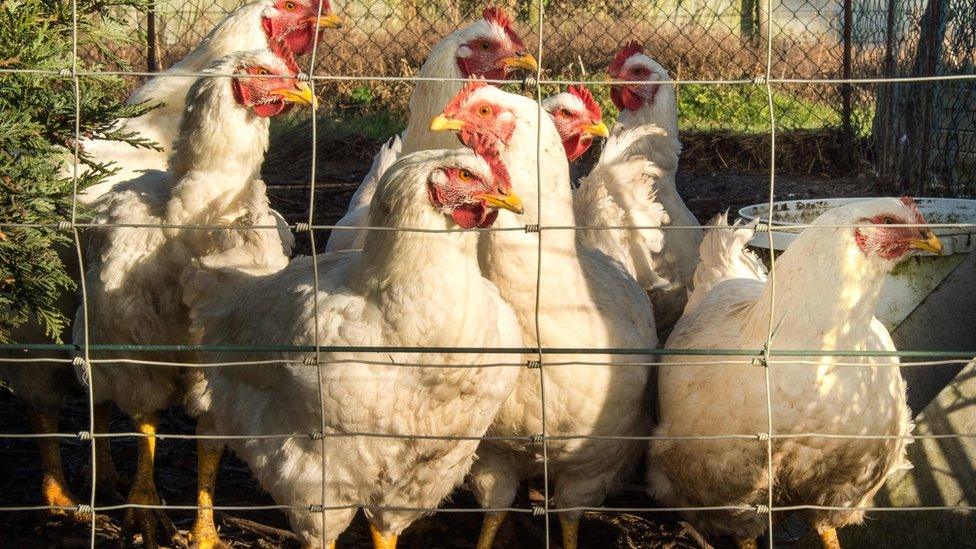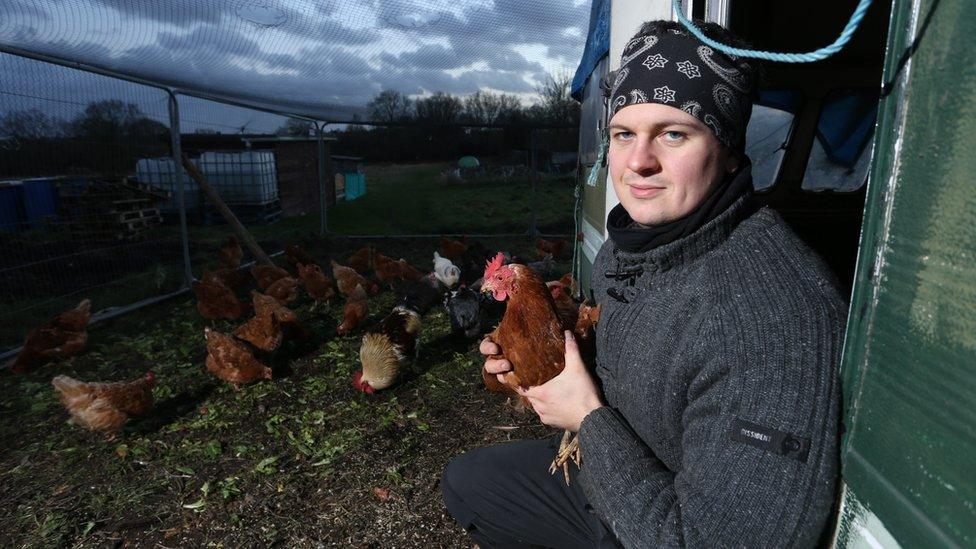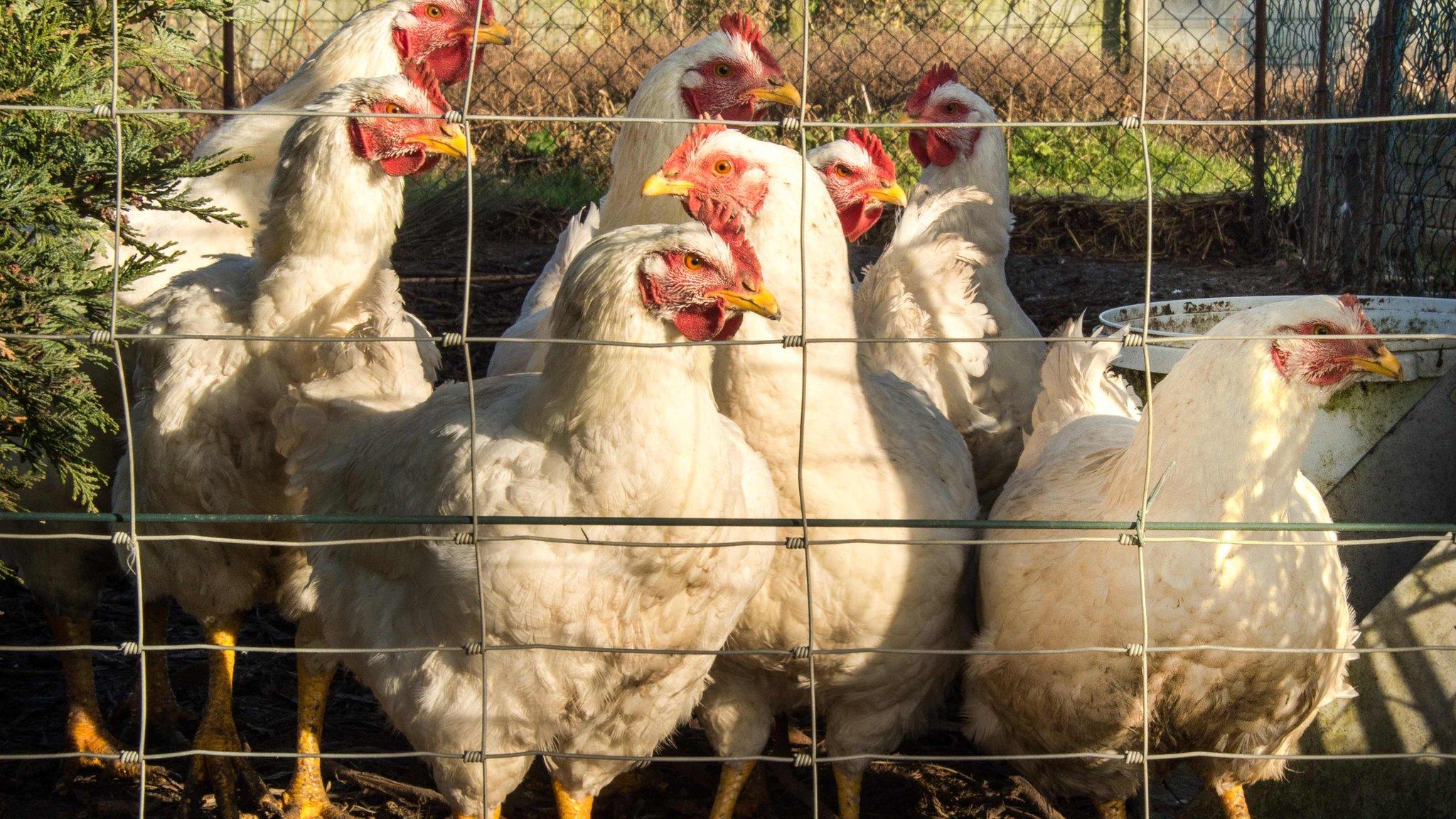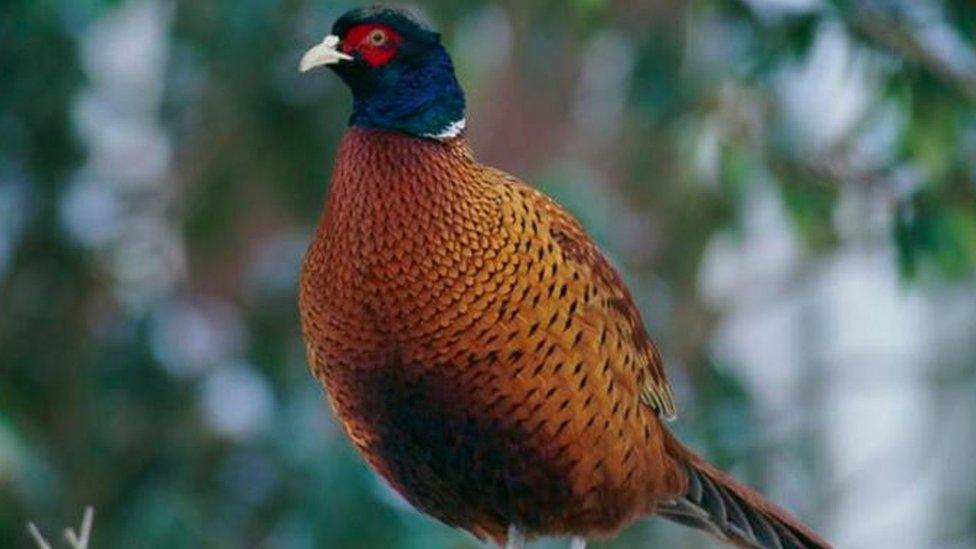Avian flu 'risk to free-range labels'
- Published

The National Farmers' Union is calling for clarity on what will happen to free-range labelling if restrictions owing to avian flu continue.
A government order means poultry must be kept indoors until the end of February or kept away from wild birds.
The H5N8 bird flu strain has been found in poultry in Lancashire, Lincolnshire, Carmarthenshire and North Yorkshire.
Under current EU rules, products from poultry housed for less than 12 weeks can be still marketed as free-range.
This 12-week allowance for birds housed owing to avian flu will come to an end on 28 February.
The rules also affects products which contain free-range egg, such as mayonnaise.

'Passing on the cost'

Daniel Winter runs Trinity Farm in Nottinghamshire, where he keeps a small flock of about 100 free-range hens.
He needed to build a new covered enclosure for them, costing £1,000.
"If it should continue for months, then we'll end up losing the free-range label," he said.
His business is trying to avoid putting up the price of their eggs.
"We've been swallowing the cost, hoping it would end, but at some point, we are going to have to start looking at passing the cost on," he said.

'Swift action'
Ruth Mason, chief food chain adviser at the NFU, said: "Plans need to be put in place in terms of how eggs can be marketed and how they should be positioned.
"It is very logistically difficult for the industry to move overnight from calling one product free-range to calling it 'barn' or whatever that might be.
"We may well get to a place where we have a free-range packaging that has a sticker over it that explains the birds have been housed, so it may say 'free-range, however, birds are currently housed due to avian influenza'."
Barn eggs are traditionally cheaper in the shops than free-range eggs.
A spokesman for the Department for Environment, Food and Rural Affairs (Defra) said: "We have taken swift action to limit the spread of the disease, with restrictions around affected premises and wider measures in place across the country, including a legal requirement for all poultry keepers to keep their birds housed or otherwise separate from wild birds. This must be coupled with good bio-security.
"All measures will be kept under review based on the best available evidence, and we are working closely with the industry on next steps."
Similar restrictions have been introduced in Scotland, Wales, and Northern Ireland, external.
You can hear more on this story on BBC Radio 4's You and Yours
- Published7 December 2016

- Published24 January 2017
